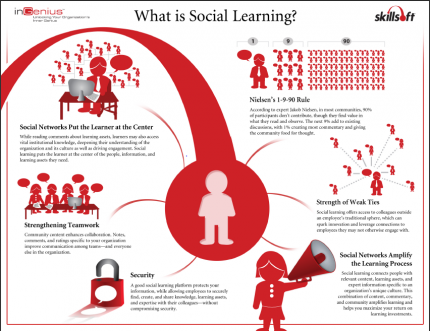 Accenture firm has released a new study on its technologies vision and their impact in 2013 on companies, with the central idea that any business becomes digital. This is not the first time I come back on this issue with some IBM studies, MIT, Sloan Management review, Mc Kinsey … the idea of digitizing the company is increasingly highlighted. But as nothing is worth pedagogy, and pedagogy is also repetition, here are the main points, which are related to the ideas presented in this blog, and not the entire study. I pass on all the tool side, data … (Even if it is interesting, but distant from the editorial line of this blog).
Accenture firm has released a new study on its technologies vision and their impact in 2013 on companies, with the central idea that any business becomes digital. This is not the first time I come back on this issue with some IBM studies, MIT, Sloan Management review, Mc Kinsey … the idea of digitizing the company is increasingly highlighted. But as nothing is worth pedagogy, and pedagogy is also repetition, here are the main points, which are related to the ideas presented in this blog, and not the entire study. I pass on all the tool side, data … (Even if it is interesting, but distant from the editorial line of this blog).
Archives par mot-clé : collaboration
Management 2.0 : share its vision through storytelling
 As already posted on this blog, share a vision and meaning is a succes factor for a collaborative project for the commitment of  employees. Share a vision, give direction, it often referred to a leader’s vision (it is true that I stand on these issues rather with the CEO or a C-suite Member), but also leadership skills that are essential in the management of project 2.0. What better way to give meaning, to make impression, if it is not through the storytelling.
As already posted on this blog, share a vision and meaning is a succes factor for a collaborative project for the commitment of  employees. Share a vision, give direction, it often referred to a leader’s vision (it is true that I stand on these issues rather with the CEO or a C-suite Member), but also leadership skills that are essential in the management of project 2.0. What better way to give meaning, to make impression, if it is not through the storytelling.
Management 2.0 : Leadership and Collaboration
 Many managers are concerned about their status as part of a collaborative organization. While their role is changing, their behavior will have to evolve as well. Being a manager, does not mean being a leader or to have a leadership attitude. Yet, in the context of a collaborative organization, managers will especially need to show leadership. Ie. move from managerial skills to a position of leadership.
Many managers are concerned about their status as part of a collaborative organization. While their role is changing, their behavior will have to evolve as well. Being a manager, does not mean being a leader or to have a leadership attitude. Yet, in the context of a collaborative organization, managers will especially need to show leadership. Ie. move from managerial skills to a position of leadership.
From the e-learning to the social learning
The EU definition of e-learning integrates social learning: « E-learning is the use of emerging Internet technologies, in order to improve learning quality, on one hand by enabling access to resources and services, and on the other hand by distance communication and collaboration »
In reality, e-learning has evolved to asynchronous distance learning (often in instructor-led teaching), with some practical exercises. Given the original definition, if access to resources and services became a reality, sharing is often unilateral and collaboration non-existent.
Management 2.0 : Innovation Across the Enterprise
The history always gave a competitive advantage to nations as to companies which knew how to get organized according to their time. The empire of Charles-Quint was a model of decentralized organization, quite as Caesar for the logistics of his armies.
In the late 90s, the Japanese manufacturers had ensured a competitive advantage through their organizations, by breaking the barriers between business line and support services of the company. We find in these examples an issue of organizational innovation.


